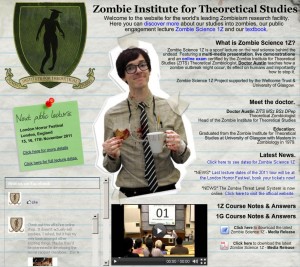 At a recent Media School meeting attendees asked us to outline some of the common funders, so here is a general overview of those funders with a Media flavour both domestic and further a field. Part One concentrates on the key UK funders and in the next few days we’ll post information on potential EU funders and schemes.
At a recent Media School meeting attendees asked us to outline some of the common funders, so here is a general overview of those funders with a Media flavour both domestic and further a field. Part One concentrates on the key UK funders and in the next few days we’ll post information on potential EU funders and schemes.
Research Councils
The two primary research councils for media-focused research are the Arts & Humanities Research Council (AHRC) and the Economic & Social Research Council (ESRC) which are responsible for funding the vast majority of arts and humanities in the UK. The success rates for the AHRC are the highest of all RC’s (see the recent blog article) and it offers standard grants, networking grants, collaborative doctoral awards and early career research grants.
The RCs also focus on particular initiatives to address issues of intellectual and wider cultural, social or economic urgency, these schemes tend to have higher success rates than the standard grants so are always worth consideration. Information on AHRC initiatives can be found here.
An overview – AHRC Early Career Research Grants:
Early Career Research Grants are intended to assist new researchers at the start of their careers in gaining experience of managing and leading research projects. They look to support well-defined research projects enabling individual researchers to collaborate with, and bring benefits to, other individuals and organisations through the conduct of research.
They also enjoy higher success rates than standard grants, there are no set submission dates, projects can last up to 60 months and should cost between £20,000 and £200,000 fEC.
To be eligible as an early career researcher you must be within eight years of the award of your PhD or equivalent professional training or within six years of your first academic appointment.
Further information on all opportunities can be found here – AHRC ESRCs
British Academy
The British Academy supports excellent ideas, individuals and intellectual resources in the humanities and social sciences. In particular, the Academy enables UK researchers to work with scholars and resources in other countries, sustain a British research presence in various parts of the world and help to attract overseas scholars to the UK.
An overview – International Partnership and Mobility Scheme:
Aims to support the development of partnerships between the UK and other areas of the world where research excellence would be strengthened by new, innovative initiatives and links. Awards are for research partnerships between scholars in the UK and scholars in Africa, Latin America and the Caribbean, Middle East, South Asia, or East Asia.
Partnerships might include a range of related activities, and mobility should form an integral part of proposals. Workshops and seminars should form an integral part of the programme. The main purpose of the funding is to cover travel and maintenance costs, although costs related to other eligible activities will be considered. Partnerships including a training element and involving scholars in the early stages in their career will be looked on favourably.
Grants are offered up to a maximum of £10,000 per year for a period of one year or three years. The submission deadline is 8th February 2012.
Further information can be found here – British Academy International Partnerships
In addition to these big UK funders, there are also some smaller more focused funders which may appeal to the interests of specific research groups within the school. For instance conference grants offered by the The Modern Humanities Research Association (MHRA) could be of interest to the Narrative Research Group – information can be found here MHRA.
 The new Knowledge Exchange Opportunities Scheme opens today until the 07th February 2012.
The new Knowledge Exchange Opportunities Scheme opens today until the 07th February 2012.
 The Wolfson Foundation has announced a further call for proposals under the Laboratory Refurbishment Grants Scheme. It aims to improve the existing physical infrastructure in UK universities to promote high quality scientific research. Up to £1.5m in funds will be available for the 2012 round.
The Wolfson Foundation has announced a further call for proposals under the Laboratory Refurbishment Grants Scheme. It aims to improve the existing physical infrastructure in UK universities to promote high quality scientific research. Up to £1.5m in funds will be available for the 2012 round.

 The academics selected were chosen from a group of 57 finalists who attended a series of day-long workshops at the BBC exploring the key to making scholarly research into good programmes. They’ve gone on to work with BBC producers to develop their broadcasting ideas, contributed to Radio 3’s Free Thinking festival, made regular appearances on Radio 3’s arts and ideas programme Night Waves and pitched ideas for full length programmes based on their research.
The academics selected were chosen from a group of 57 finalists who attended a series of day-long workshops at the BBC exploring the key to making scholarly research into good programmes. They’ve gone on to work with BBC producers to develop their broadcasting ideas, contributed to Radio 3’s Free Thinking festival, made regular appearances on Radio 3’s arts and ideas programme Night Waves and pitched ideas for full length programmes based on their research. The Wellcome Trust
The Wellcome Trust



 The
The 













 SPROUT: From Sustainable Research to Sustainable Research Lives
SPROUT: From Sustainable Research to Sustainable Research Lives BRIAN upgrade and new look
BRIAN upgrade and new look Seeing the fruits of your labour in Bangladesh
Seeing the fruits of your labour in Bangladesh Exploring Embodied Research: Body Map Storytelling Workshop & Research Seminar
Exploring Embodied Research: Body Map Storytelling Workshop & Research Seminar Marking a Milestone: The Swash Channel Wreck Book Launch
Marking a Milestone: The Swash Channel Wreck Book Launch ECR Funding Open Call: Research Culture & Community Grant – Application Deadline Friday 12 December
ECR Funding Open Call: Research Culture & Community Grant – Application Deadline Friday 12 December MSCA Postdoctoral Fellowships 2025 Call
MSCA Postdoctoral Fellowships 2025 Call ERC Advanced Grant 2025 Webinar
ERC Advanced Grant 2025 Webinar Update on UKRO services
Update on UKRO services European research project exploring use of ‘virtual twins’ to better manage metabolic associated fatty liver disease
European research project exploring use of ‘virtual twins’ to better manage metabolic associated fatty liver disease